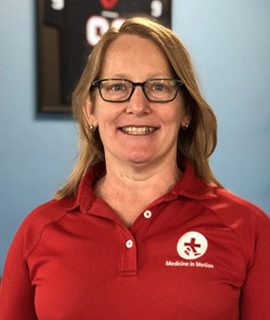Sports Medicine Austin
Book Your Appointment

What is Sports Medicine?
Sports doctors specialize in non-surgical treatment of musculoskeletal issues and work with individuals ranging from amateurs to professionals to achieve the maximum sporting potential.
They perform physical evaluations, develop personalized treatment plans encompassing therapy and medication, and focus on injury prevention. Sports doctors also emphasize preventive care, offering advice on nutrition, training, and gear usage.
Collaborating with a multidisciplinary team and staying updated on advancements in sports medicine, they ensure a comprehensive approach to athletes’ health and well-being.
This rigorous process was instituted to distinguish certified Sports Medicine specialists from other physicians without specialized training.
Sports Medicine Specialists are uniquely positioned to meet the demands of today’s health care environment.
Expertise in Musculoskeletal Injury
Sports Medicine specialists undergo extensive training in musculoskeletal medicine, and as a result are better equipped than their primary care counterparts in the management of these problems. Sports Medicine Specialists are different than sports orthopedic surgeons.
While sports orthopedic surgeons primarily focus on the operative treatment of musculoskeletal injuries, Sports Medicine Specialists specialize in the non-operative medical treatment of these injuries. This represents the great majority of the active population since approximately 90 percent of all sports injuries are non-surgical.

If surgery is required, a Sports Medicine Specialist can expedite referral to an orthopedic surgeon. They can also help guide referrals to appropriate rehabilitative care and ancillary services when necessary. Common examples of musculoskeletal problems include acute injuries such as ankle and knee sprains, muscle strains, and shoulder dislocations, and overuse injuries such as tendonitis and stress fractures.
This rigorous process was instituted to distinguish certified Sports Medicine specialists from other physicians without specialized training.
Sports Medicine Specialists are uniquely positioned to meet the demands of today’s health care environment.
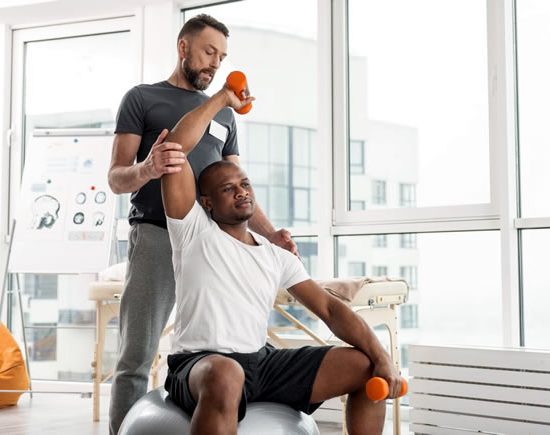
Expertise in Non-Musculoskeletal Injury
Sports Medicine Specialists have also received additional training in the non-musculoskeletal aspects of sports medicine. These often over-looked medical problems now have a specialist in their corner.
Common Non-Musculoskeletal Sports Medicine Problems
- Mild traumatic brain injury and other head injuries
- Athletes with chronic or acute illness (such as infectious mononucleosis, asthma or diabetes)
- Nutrition and performance issues
- Exercise prescription for patients who want to increase their fitness
- Injury prevention
- “Return to play” decisions in the sick or injured athlete
- Strength training and conditioning
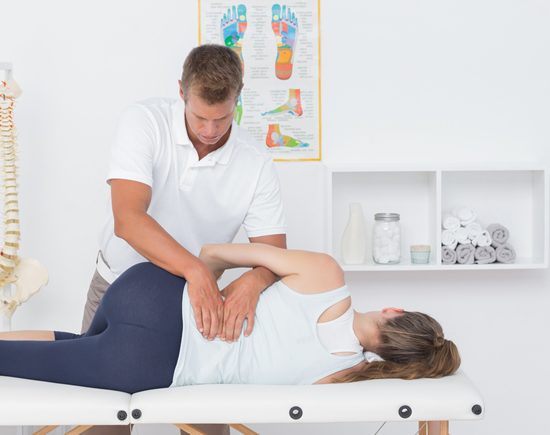
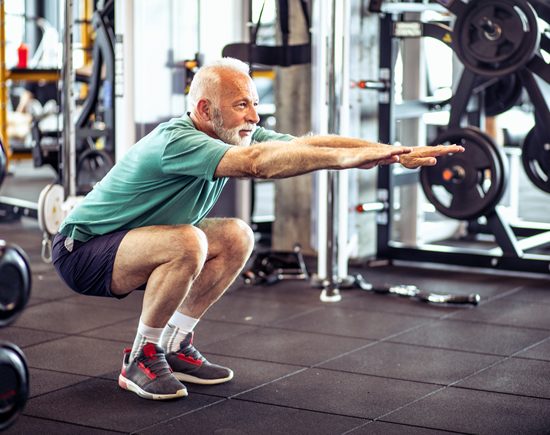
Sports Medicine does not just mean the competitive athlete
Sports Medicine Specialists are ideal providers for the non-athlete and are excellent resources for the individual who wishes to become active or begin an exercise program.
For the “weekend warrior” or “industrial athlete” who experiences an injury, the same expertise used for the competitive athlete can be applied to return the individual as quickly as possible to full function.
Getting people moving
Keeping patients healthy is the common goal between medical professionals and the insurance industry. Of the myriad of medical specialties which exist today, only Sports Medicine is centered within a wellness-based (rather than disease-based) model.
Beyond the abilities of other clinicians, Sports Medicine physicians, by virtue of their training, have the capability to take a sedentary population and incorporate the health-beneficial effects of exercise into people’s lives. Most adults fail to adequately exercise, and about one-quarter are completely sedentary(4).
Unfortunately, only a small percentage of this sedentary population are appropriately counseled by their doctor to exercise(5,6). In fact, less than one quarter of all primary care physicians were familiar with the American College of Sports Medicine (ACSM) guidelines related to exercise prescription(6,7).
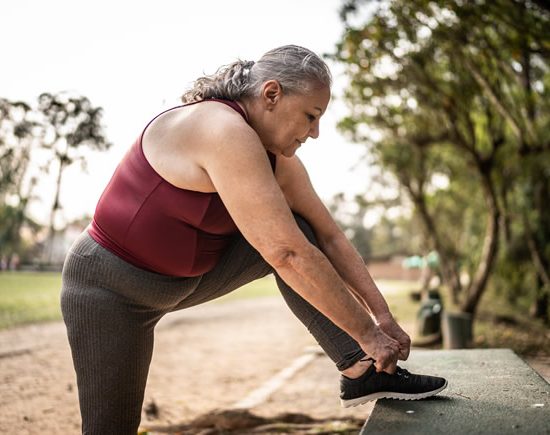
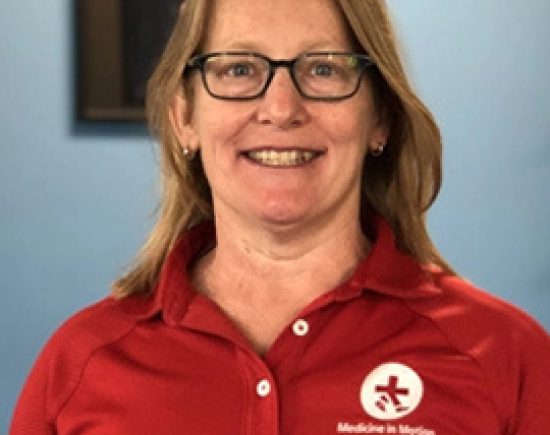
Sports Medicine physicians help bridge this gap
Although it remains important for primary care physicians to talk to their patients about the benefits of exercise, research clearly indicates that proper counseling can be effective when delivered by a practitioner with more extensive training(7, 8, 9). That practitioner is the Sports Medicine Specialist.
The Beneficial Effects of Exercise
- Reduction in risk of premature death due to all causes
- Reduction in risk of cardiac death
- Reduction in risk of development of diabetes
- Reduction in risk of development of high blood pressure
- Reduction in risk of development of colon cancer
- Reduction of pre-established high blood pressure
- Reduction of subjective depression or anxiety
- Improvement in objective measures of obesity
- Decrease in elderly fall risk by increasing balance and proprioceptive skills (4)

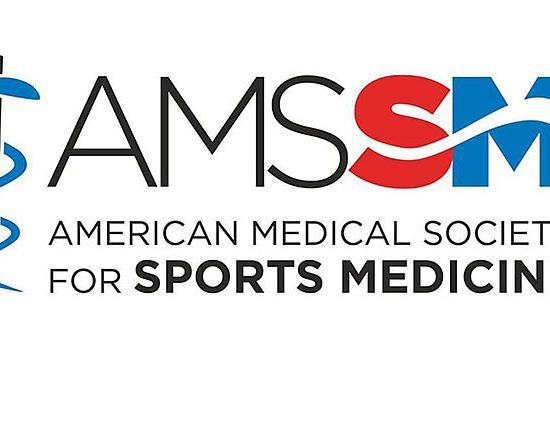
A word about the American Medical Society for Sports Medicine
The American Medical Society for Sports Medicine (AMSSM) was organized in 1991 by a group of family physicians who recognized the need for an organization within the field of Sports Medicine that addressed overall health and functional capacity as it relates to the whole patient, and the incorporation of an objectively verifiable knowledge base towards enhancement and preservation of function(10). The AMSSM was formed to provide a link between the rapidly expanding core of knowledge related to sports medicine and its application to patients in a clinical setting. The clinician best suited to practically establish that link is the Sports Medicine specialist. For more information about Sports Medicine or about the AMSSM, please call (913) 327-1415 or visit our web site at www.amssm.org. We’re dedicated to keeping patients healthy and active.
Do Sports Medicine Physicians only treat competitive athletes?
No, Sports Medicine Physicians are ideal physicians for the non-athlete as well, and are excellent resources for the individual who wishes to become active or begin an exercise program. For the weekend warrior” or “industrial athlete” who experiences an injury, the same expertise used for the competitive athlete can be applied to return the individual as quickly as possible to full function.

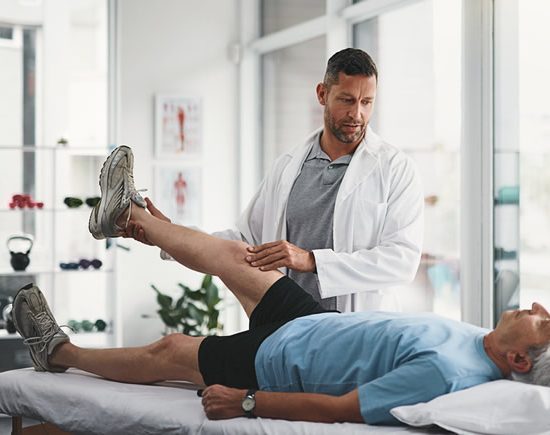
What is a Sports Medicine Physician?
- A physician with specialized training who promotes lifelong fitness and wellness, and encourages prevention of illness and injury. This physician helps the patient maximize function and minimize disability and time away from sports, work, or school.
- He or she is a leader of the sports medicine team, which also includes specialty physicians and surgeons, athletic trainers, physical therapists, coaches, other personnel, and, of course, the athlete.
- They are experienced sports medicine physicians with a primary specialty in Family Practice, Internal Medicine, Emergency Medicine, Pediatrics, or Physical Medicine and Rehabilitation, most of whom obtain 1-2 years of additional training in sports medicine through accredited fellowship (subspecialty) programs in Sports Medicine. Physicians, who are board certified in Family Practice, Internal Medicine, Emergency Medicine, or Pediatrics, are then eligible to take a subspecialty qualification examination in Sports Medicine. Additional forums, which add to the expertise of a Sports Medicine Physician, include continuing education in sports medicine, and membership and participation in sports medicine societies.
What is the difference between a Sports Medicine Physician and an Orthopedic Surgeon?
Both are well trained in musculoskeletal medicine. Sports Medicine Physicians specialize in the non-operative medical treatment of musculoskeletal sports conditions. Orthopedic surgeons are also trained in the operative treatment of these conditions. Approximately 90% of all sports injuries are non-surgical, and Sports Medicine Physicians can expedite referral to an orthopedic / sports surgeon when indicated, and can help guide referrals to appropriate rehabilitative care and ancillary services as needed. Common examples of musculoskeletal problems include:
- Acute injuries (such as ankle sprains, muscle strains, knee & shoulder injuries, and fractures)
- Overuse injuries (such as tendonitis, stress fractures)
- Mild traumatic brain injury and other head injuries
- Athletes with chronic or acute illness (such as infectious mononucleosis, asthma or diabetes)
- Nutrition, supplements, ergogenic aids and performance issues
- Exercise prescription for patients who want to increase their fitness
- Injury prevention
- “Return to play” decisions in the sick or injured athlete
- Strength training and conditioning
- Healthy lifestyle promotion
Most Sports Medicine Physicians also serve as Team Physicians for local and/or National teams and clubs. These physicians must fulfill published qualifications with the following responsibilities:
- Pre-participation physical examination
- Injury assessment and management
- Care of sports-related and general medical needs of athletes
- Special populations (elderly, disabled, women, youth, etc)
- Sports psychology issues
- Addressing substance use
- Education and counseling on illness & injury prevention
- Coordinating care with other members of the sports medicine team to include athletic trainers, physical therapists, personal physicians, other medical and surgical specialties, and other ancillary personnel of specialty care and rehabilitation
- Communication with athletic trainers, coaches, school administration, as well as athletes and their families
References
- The ABMS Annual Report and Reference Handbook , The American Board of Medical Specialties, Evanston, IL.
- The Physician and Sports Medicine Fellowship Listing, www.amssm.org
- The American Board of Family Practice, Lexington, Kentucky, www.abfp.org/caqs.htm
- Surgeon General’s Report on Physical Activity and Health, 1996.
- Friedman C, Brownson RC, Peterson DE, Wilkerson JC. Physician advice to reduce chronic disease risk factors. Am J Prev Med 1994;10:367-71.
- Williford HN, Ba rfield BR, Laze n by RB, Olson MS. A survey of physicians’ attitudes and practices related to exercise promotion. Prev Med 1992; 21:630-6.
- Walsh JM, Swangard DM, Davis T, McPhee SJ. Exercise counseling by primary physicians in the era of managed care. Am J Prev Med 1999;16:307-13.
- Marcus BH, Goldstein MG, Jette A, Simkin Silverman L, Pinto BM, Milan F, Washburn R,
- Smith K, Rakowski W, Dube CE. Training physicians to conduct physical activity counseling. Prev Med 1997; 26:382-8.
- Calfas KJ, Long BJ, Sallis JF, Wooten WJ, Pratt M, Patrick K. A controlled trial of physician counseling to promote the adoption of physical activity. Prev Med 1996; 25:225-33.
- Matheson G, editorial in Phys Sports Med 1999; 27:5,111. 11639
Sports Medicine FAQs
Yes, sports medicine specialists can provide exercise prescriptions for patients who want to increase their fitness. This can be particularly beneficial for individuals who are just starting to become active, as the specialist can provide guidance on the type, amount, and intensity of exercise that is appropriate for the individual’s current fitness level and goals.
Yes, injury prevention is a key aspect of sports medicine. Sports medicine specialists can provide advice and guidance on how to prevent injuries, both for athletes and for individuals who are just starting to become active. This can include advice on proper technique, strength training and conditioning, and more.
Sports medicine is centered within a wellness-based model, focusing on keeping patients healthy and active. Sports medicine physicians have the capability to take a sedentary population and incorporate the health-beneficial effects of exercise into people’s lives. This can lead to a reduction in risk of various health issues, including premature death, cardiac death, diabetes, high blood pressure, and colon cancer, among others.
Sports medicine is a recognized subspecialty that focuses on the prevention, diagnosis, and treatment of injuries related to sports and exercise. It has been a recognized subspecialty by the American Board of Medical Specialties since 1989, and there are currently more than 70 Sports Medicine fellowships and approximately one thousand certified Sports Medicine Specialists in the United States. These specialists are physicians with a primary certification in Family Practice, Internal Medicine, Emergency Medicine, Pediatrics, or Physical Medicine and Rehabilitation who obtain 1-2 years additional training in Sports Medicine through recognized fellowship programs.
The American Medical Society for Sports Medicine (AMSSM) is an organization formed in 1991 by a group of family physicians who recognized the need for an organization within the field of sports medicine that addressed overall health and functional capacity as it relates to the whole patient. The AMSSM provides a link between the rapidly expanding core of knowledge related to sports medicine and its application to patients in a clinical setting. The clinician best suited to practically establish that link is the sports medicine specialist.
Both sports medicine physicians and orthopedic surgeons are well trained in musculoskeletal medicine. However, while orthopedic surgeons primarily focus on the operative treatment of musculoskeletal injuries, sports medicine physicians specialize in the non-operative medical treatment of these injuries. This is important as approximately 90% of all sports injuries are non-surgical.
Sports medicine physicians often serve as team physicians for local and/or national teams and clubs. They are responsible for pre-participation physical examination, injury assessment and management, care of sports-related and general medical needs of athletes, and “return to play” decisions in the sick or injured athlete. They also coordinate care with other members of the sports medicine team, including athletic trainers, physical therapists, other medical and surgical specialties, and other ancillary personnel of specialty care and rehabilitation.
Sports medicine specialists treat a wide range of musculoskeletal and non-musculoskeletal injuries. Musculoskeletal problems can include acute injuries such as ankle and knee sprains, muscle strains, and shoulder dislocations, and overuse injuries such as tendonitis and stress fractures. Non-musculoskeletal problems can include mild traumatic brain injury and other head injuries, athletes with chronic or acute illness, nutrition and performance issues, and more.
Sports medicine is not just for competitive athletes. It’s also beneficial for non-athletes and individuals who wish to become active or begin an exercise program. The same expertise used for the competitive athlete can be applied to return the “weekend warrior” or “industrial athlete” as quickly as possible to full function after an injury.


